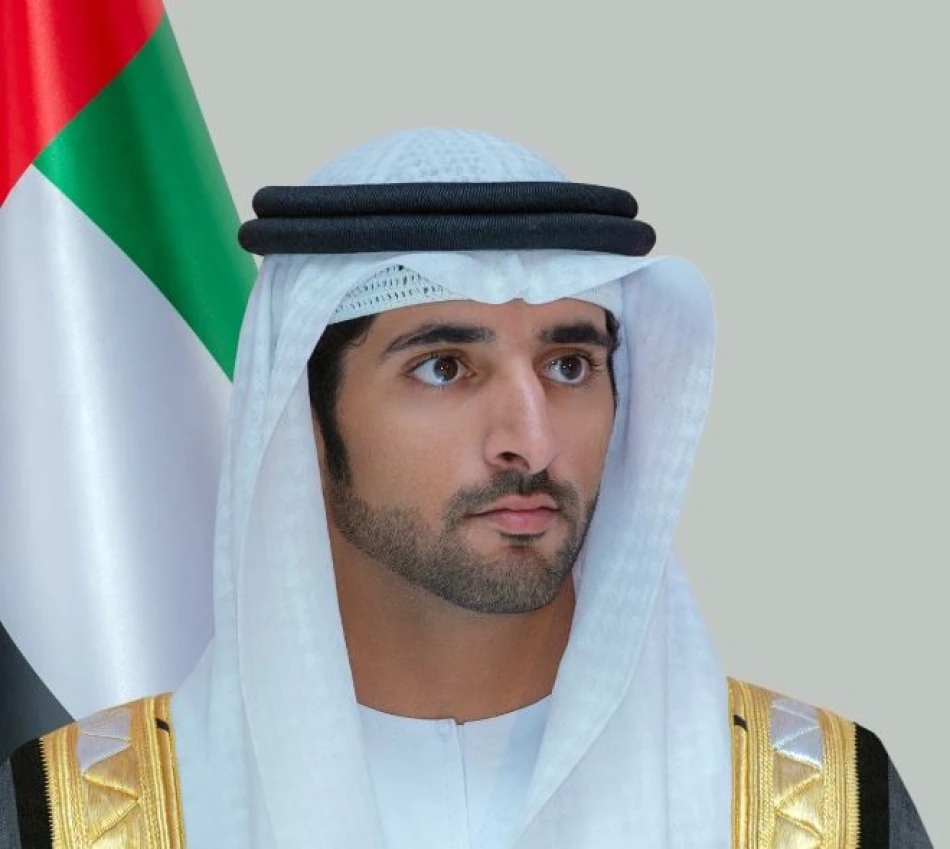
Dubai's Civil Defense to Become World's Premier Emergency Response Authority, Directs Crown Prince
Dubai Crown Prince Orders World-Class Civil Defense Overhaul with AI and Robotics Integration
Dubai's Crown Prince Sheikh Hamdan bin Mohammed has directed the emirate's civil defense forces to achieve global leadership standards through accelerated adoption of artificial intelligence, robotics, and advanced technologies. The ambitious directive positions Dubai to compete with world-class emergency response systems while establishing a proactive, sustainable civil defense framework that could set new regional benchmarks.
Strategic Vision for Global Civil Defense Leadership
During his visit to Dubai Civil Defense headquarters, Crown Prince Sheikh Hamdan outlined a comprehensive strategy aimed at ensuring the highest levels of life safety and property protection. The initiative reflects Dubai's broader ambition to lead across multiple sectors, from smart city infrastructure to emergency preparedness.
"We are accelerating the adoption of artificial intelligence systems, robotics, and advanced technologies to build a proactive and sustainable civil defense system that ensures the highest levels of protection for our community," the Crown Prince stated on social media platform X.
Technology-Driven Emergency Response Revolution
AI and Robotics Integration
The emphasis on artificial intelligence and robotics signals Dubai's intent to modernize emergency response beyond traditional methods. This technological leap could include predictive analytics for fire prevention, autonomous emergency vehicles, and AI-powered dispatch systems that optimize response times across the emirate's rapidly expanding urban landscape.
Proactive Defense Systems
The shift toward "proactive" civil defense represents a fundamental change from reactive emergency response to predictive prevention. This approach aligns with global trends in smart city development, where data analytics and IoT sensors can identify potential hazards before they escalate into emergencies.
Regional and Global Context
Dubai's civil defense modernization occurs amid intensifying competition among Gulf states to establish world-class public services. Saudi Arabia's NEOM project and Qatar's smart city initiatives have raised regional standards, while Singapore and South Korea have set international benchmarks for technology-integrated emergency services.
The initiative also reflects practical necessity. Dubai's rapid population growth, towering skyscrapers, and extreme summer temperatures create unique emergency response challenges that traditional methods may struggle to address effectively.
Implementation and Oversight
Crown Prince Sheikh Hamdan has tasked Dubai's Executive Council with monitoring practical implementation steps, ensuring accountability at the highest levels of government. This direct oversight mechanism suggests the initiative carries significant political priority and resource allocation.
Implications for Public Safety Standards
Success in this modernization effort could establish Dubai as a global case study for technology-integrated emergency services, potentially attracting international partnerships and knowledge-sharing agreements. The initiative may also influence building codes, urban planning standards, and insurance frameworks as preventive technologies become more sophisticated.
For residents and businesses, the enhanced civil defense capabilities promise improved response times and more effective emergency management, factors that could strengthen Dubai's appeal as a global business hub and residential destination.
Most Viewed News

 Sara Khaled
Sara Khaled






